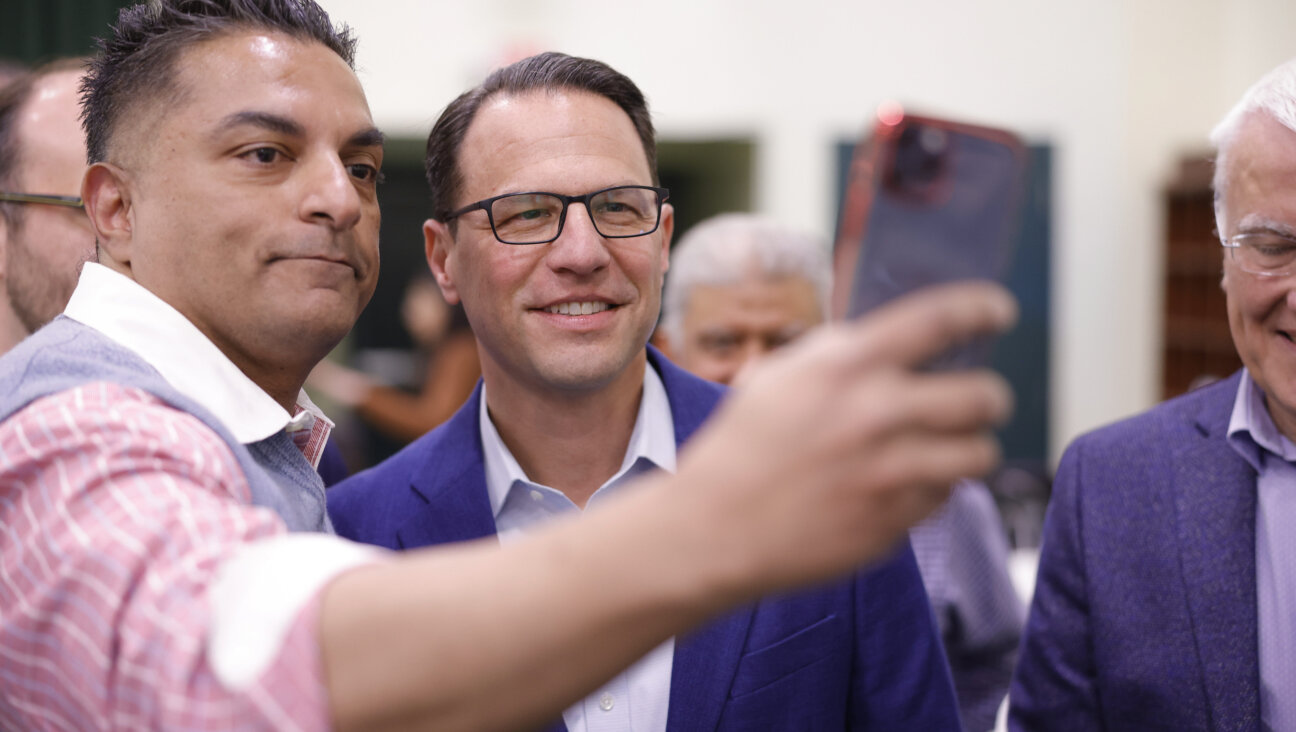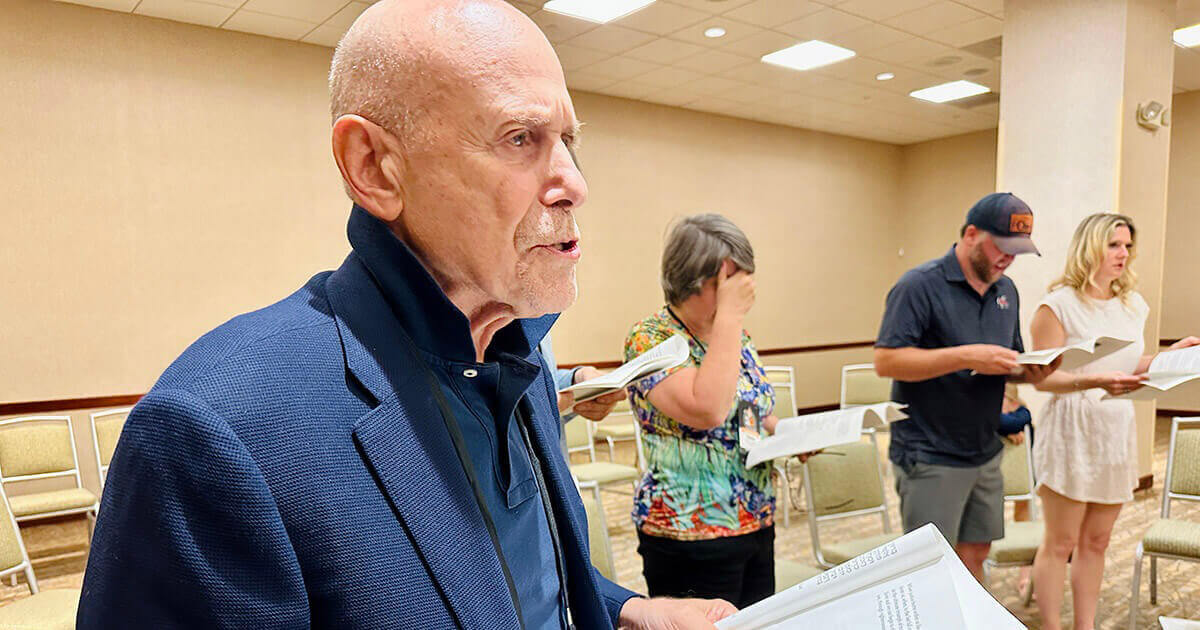Top Bush Adviser Engulfed In Spat Over His Business
A top Bush administration adviser who is known as a leading advocate of war with Iraq became engulfed in controversy this week regarding a potential conflict of interest between his business activities and his unpaid government postion.
Richard Perle, a former assistant secretary of defense under Ronald Reagan, has come under fire for accepting a consulting job with the embattled telecommunications giant, Global Crossing. Critics said the job raised a potential conflict of interest with his position as chairman of the Defense Policy Board, a key advisory panel to the Pentagon.
“I believe it is not appropriate to do both things,” said Democratic Rep. Barney Frank of Massachusetts. “He was hired not because of his expertise in telecommunications but because of his connections. So it’s a conflict of interest.”
Perle, a longtime advocate of regime change in Iraq, has attracted unwanted attention in recent months from critics of the administration’s Iraq policy who have claimed that his hawkish stance was motivated by his Jewish background and ties to Israel.
Two key Jewish communal leaders, Malcolm Hoenlein and Abraham Foxman, declined to comment on the Global Crossing controversy, stressing that although Perle was Jewish, his business ties were “not a Jewish problem.”
The two were quoted last December as voicing criticism of the dovish political consultant Stephen P. Cohen, who had been accused in the Israeli press of involvement in business deals involving Palestinians with whom he was negotiating on Israel’s behalf. Foxman and Hoenlein dismissed any similarity between the two cases, however.
News organizations reported March 21 that Perle had been hired by Global Crossing to help it win approval for the sale of one of its subsidiaries to a joint venture of Technologies Telemedia of Singapore and the Hong Kong-based Hutchison Whampoa.
While a bankruptcy court has approved the sale, it still needs approval from the Federal Communications Commission and the Committee on Foreign Investment in the United States, a federal panel that includes representatives from several agencies.
Among those represented on the panel are the FBI and the Pentagon. Both agencies have taken the position that the sale would pose a threat to national security, because it would put Global Crossing’s fiber optics network, which is used by the American government, under foreign control. Hutchison is said to have links to the Chinese government.
The New York Times argued in an editorial that Perle was likely hired to help overcome Pentagon resistance, thanks to his close links to three top administration defense officials, Donald Rumsfeld, Paul Wolfowitz and Douglas Feith.
Global Crossing agreed to pay Perle $725,000 for his services, of which $600,000 is contingent on government approval of the sale.
Perle told the Times there was no conflict in his case because the Defense Policy Board is not involved in approving the Global Crossing deal, and because he was only serving in an advisory capacity to its lawyers.
However, the Times mentioned an affidavit Perle had signed for the bankruptcy court in which he claimed he was uniquely qualified to serve as an adviser to Global Crossing because of his job as head of the Defense Policy Board. Perle told the Times he had not seen the affidavit before signing it.
Although his position on the Defense Policy Board is not paid, Perle is a “special government employee” and hence subject to federal ethics rules that bar officials from making private gains from their government positions.
The Times, in an editorial Monday, called Perle’s situation “a conflict pure and simple” and urged him to abandon one of his activities.
Perle did not return e-mail queries seeking comment.
Perle’s private activities have come under close scrutiny in numerous articles focusing on his behind-the-scenes role in promoting a war in Iraq and, following an American victory, a “domino theory” of democratizing the Middle East.
The first blow came in a New Yorker article earlier this month by investigative reporter Seymour Hersh, who raised questions about whether Perle had violated the terms of his service on the Defense Policy Board. He asserted that Perle held a business meeting in France back in January with Saudi businessmen, including the controversial Saudi arms merchant Adnan Khashoggi. The Saudi ambassador to Washington, Prince Bandar al-Sultan, was quoted as saying that “there were elements of the appearance of blackmail — ‘If we get in business, he’ll back off on Saudi Arabia.’”
Perle lashed back in the following days, telling CNN that Hersh was “the closest thing American journalism has to a terrorist.” He told the Washington Post that Hersh “ignites bombs” and does not care “whether the victims are innocent civilians.”
Hoenlein and Foxman had been quoted publicly several months ago as critical of Cohen for his alleged financial dealings with Palestinian officials, which were described as being in conflict with his role as a behind-the-scenes peace broker during the Oslo period. Questioned about their unwillingness to weigh in similarly in the Perle case, the two said that their criticism of Cohen had been legitimate because there was a stronger Israeli and Jewish dimension to the case.
Cohen, a back-channel negotiator associated with the Israel Policy Forum, was accused last December in the Israeli daily Ma’ariv of involvement in a questionable deal in which Israeli envoy Yossi Ginossar allegedly transferred $300 million in Palestinian Authority funds to a secret Swiss bank account controlled by Yasser Arafat. Ginossar was accused of using his own companies to move the funds, and Cohen was named as a partner with Ginossar in one of those firms, which allegedly profited from cement and gasoline deals between Israeli and Palestinian companies. Cohen forcefully denied the allegations at the time.
Cohen’s business conflicts merited criticism, Foxman told the Forward, because he “is a Jewish leader, he is involved in Israeli-Palestinian discussions and he is counseling the Palestinians.”
Cohen could not be reached for comment.
A message from our editor-in-chief Jodi Rudoren

We're building on 127 years of independent journalism to help you develop deeper connections to what it means to be Jewish today.
With so much at stake for the Jewish people right now — war, rising antisemitism, a high-stakes U.S. presidential election — American Jews depend on the Forward's perspective, integrity and courage.
— Jodi Rudoren, Editor-in-Chief






















